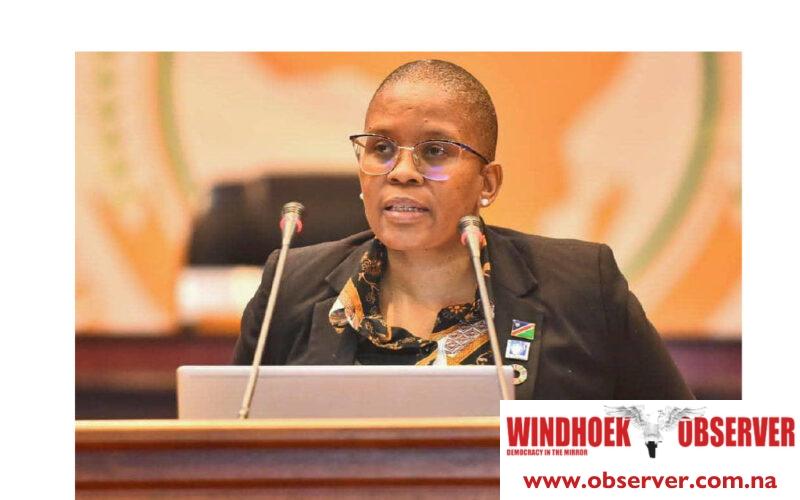Ester Mbathera
Justice Minister Yvonne Dausab urged lawmakers to support the Ombudsman Bill, arguing that it will strengthen the office’s independence and improve governance.
She said this during her motivation for the Ombudsman Bill in the National Assembly on Wednesday.
According to her, the bill aligns with international standards and ensures the Ombudsman operates without political influence.
“The bill now before this house seeks to give effect to these reforms and ensure that the Office of the Ombudsman operates with the independence and authority required to effectively fulfil its mandate,” Dausab said.
She said the proposed changes will give the office stronger legal backing to investigate human rights violations, maladministration, and environmental concerns.
Dausab said the bill expands the Ombudsman’s mandate, allowing it to take on broader issues of social justice.
“We are giving the Ombudsman the tools to address systemic problems and ensure public institutions are held accountable,” she said.
Dausab explained that there are currently no known incidents of interference by other state organs in the works of the Ombudsman office.
“We pride ourselves with an enhanced culture of respecting the principles of separation of powers for our institutions,” she said.
The Ombudsman Bill Act 7 of 1990 came into force on 14 June 1919 and was unchanged over three decades.
According to Dausab, the need for an effective and well-resourced office became increasingly evident as the public required an institution that could respond to their concerns in a timely and competent manner.
This led to the Parliamentary Standing Committee on Constitutional and Legal Affairs conducting a review and, in July 2018, recommended that the Office of the Prime Minister and the Ministry of Justice introduce a bill to amend the Ombudsman Act.
Dausab said the bill proposes to separate the Office of the Ombudsman from the Ministry of Justice in terms of administrative and financial responsibilities, much like the judiciary.
“The recommendation emphasised the need to strengthen the Ombudsman’s powers, introduce punitive measures for non-compliance, enhance its autonomy, and provide for the appointment of an Executive Director and staff, along with a dedicated budget vote,” she said.
This recommendation was subsequently adopted by the National Assembly on 17 March 2020, laying the foundation for the drafting of the Ombudsman Bill.
The bill introduces measures to improve accountability and transparency within the Ombudsman’s office.
Dausab said structured reporting and oversight will enhance its ability to respond to complaints.
“It is no secret that the Office of the Ombudsman has faced criticism in the past, with some questioning its effectiveness and impact. However, our vision is to strengthen this institution so that it truly serves its mandate as it is supposed to. We want to change public perception by ensuring that the Ombudsman’s interventions lead to real success stories,” she said.
She called for greater public engagement, saying more people should understand how to access the Ombudsman’s services.
“An equally urgent issue is the lack of access to justice for many indigent individuals in developing our country. Even when individuals are aware of their legal rights, the complexity of legal procedures and the high cost of legal services often discourage them from seeking justice. This issue is especially troubling in the area of human rights protection, as rights are meaningless if they cannot be effectively enforced,” she said.
Dausab urged lawmakers to pass the bill, saying it reflects Namibia’s constitutional values and strengthens democratic institutions.
“I urge honourable members to approach this discussion with a commitment to justice and the betterment of our legal system as we work towards passing this critical legislation. The Bill plays a key role in strengthening Namibia’s dedication to the rule of law, good governance, and the protection of citizens’ rights,” she said.
Swapo backbencher Tobie Aupindi, in his contribution to the bill, asked that the bill must not only deal with public entities but also with private entities.
“This bill should not only look to hold the public sector accountable. In fact, some of these private entities are the ones that are busy violating people’s human rights,” Aupindi said.




